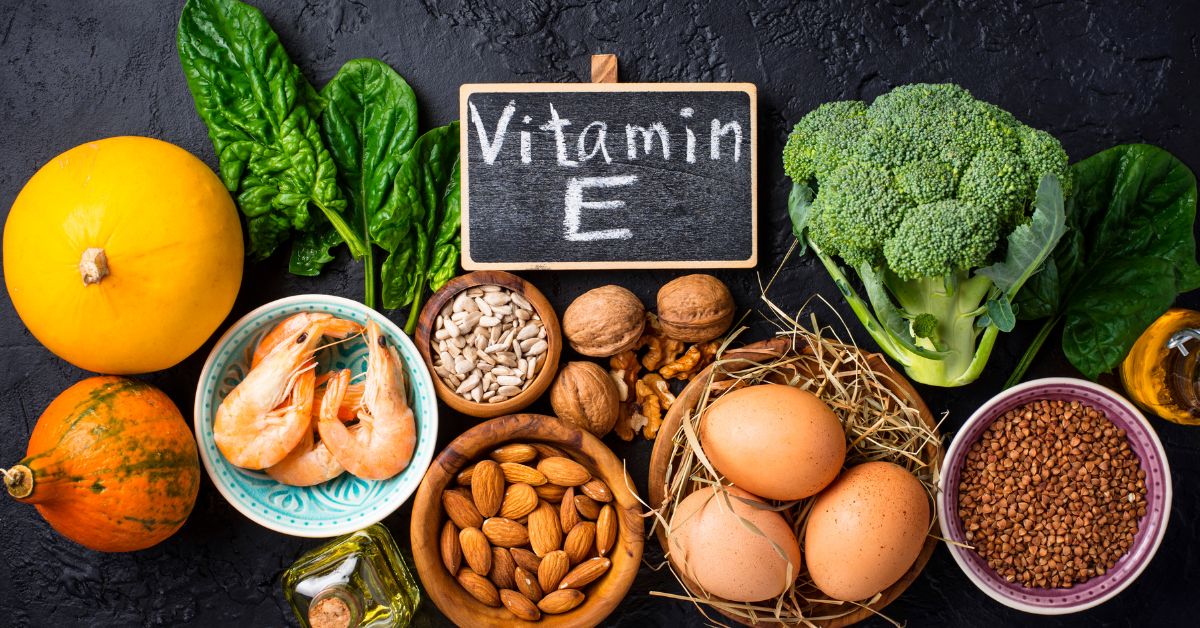What is Vitamin E deficiency?
Vitamin E is a fat-soluble antioxidant that plays a crucial role in protecting cells from oxidative damage and supporting immune function. However, when there is an inadequate intake or absorption of Vitamin E, deficiency can occur, leading to various health problems.
In this article:
This deficiency can have detrimental effects on various bodily functions, particularly those related to immune function and cellular health. It is important to know its symptoms, causes, treatment options, and the crucial role parents can play in supporting their children’s nutritional needs.
What causes Vitamin E deficiency in children?
Several factors can contribute to a Vitamin E deficiency. Besides inadequate diet, there are other factors which play a contributing role in development of deficiency. These include:
- Inadequate dietary intake of Vitamin E-rich foods, particularly in populations with limited access to nuts, seeds, vegetable oils, and green leafy vegetables.
- Malabsorption syndromes or gastrointestinal disorders that impair the absorption of dietary fat and fat-soluble vitamins, including Vitamin E.
- Genetic disorders that affect Vitamin E metabolism, such as ataxia with Vitamin E deficiency (AVED) or familial isolated Vitamin E deficiency (FIVED).
- Premature infants are at increased risk of Vitamin E deficiency due to immature liver function and limited stores of fat-soluble vitamins.
What signs and symptoms may be observed in Vitamin E deficiency in children?
The symptoms of Vitamin E deficiency can vary in severity. Some of them are:
- Muscle weakness or difficulty in walking
- Vision problems, including impaired eye movement or retinal degeneration
- Impaired immune function, leading to increased susceptibility to infections
- Neurological symptoms such as tingling or numbness in the extremities
- Cognitive impairments, including poor memory or difficulty concentrating
- Skin problems, such as dryness, itching, or dermatitis
How is Vitamin E deficiency managed?
Treating Vitamin E deficiency typically involves supplementation with Vitamin E supplements or increasing intake of Vitamin E-rich foods. For individuals with malabsorption syndromes or gastrointestinal disorders, Vitamin E supplements may be necessary to ensure adequate intake. Additionally, addressing underlying causes of deficiency, such as improving dietary habits or treating underlying medical conditions, is essential for long-term management.
What should I know as a parent?
As a parent, there are several ways you can support your child’s Vitamin E needs and help prevent or address deficiency:
- You should ensure that your child consumes a balanced diet which is rich in Vitamin E-containing foods such as nuts, seeds, vegetable oils (e.g., sunflower oil, olive oil), green leafy vegetables, and fortified cereals.
- You should encourage regular consumption of Vitamin E-rich foods to maintain adequate intake throughout the day.
- You need to keep in mind the factors which can increase Vitamin E requirements, such as periods of rapid growth or illness, and adjust your child’s diet accordingly.
- Parents can opt for routine screening for Vitamin E deficiency during pediatric check-ups, particularly for children at risk due to dietary restrictions or underlying medical conditions.
- You should immediately seek medical advice if you suspect your child may be experiencing symptoms of Vitamin E deficiency, as early detection and intervention can prevent complications and improve outcomes.








